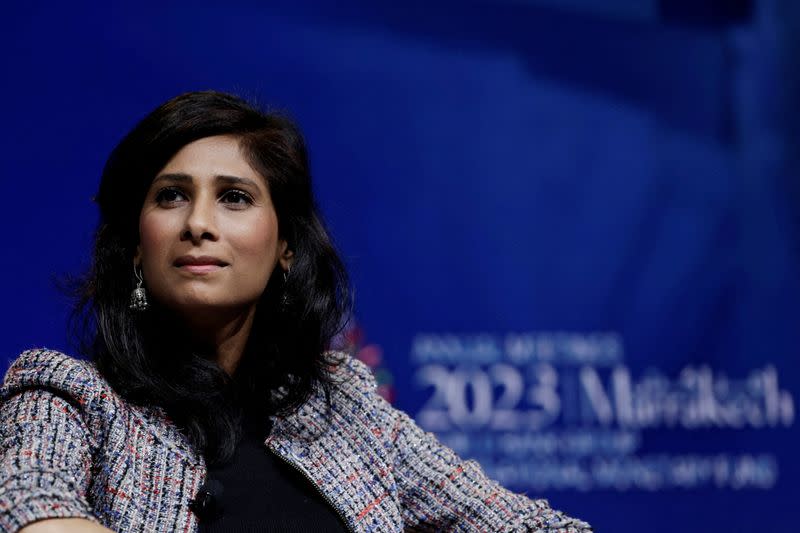IMF warns that any action on Russian assets needs 'sufficient legal support'

By Andrea Shalal
WASHINGTON (Reuters) - The International Monetary Fund on Monday warned that any decisions taken about seizing frozen Russian assets should be backed with "sufficient legal support" to avert future risks.
IMF First Deputy Managing Director Gita Gopinath, in an online interview with Foreign Policy magazine, said decisions about what to do with the assets rested solely with countries holding them. She declined to offer an opinion on how they should be used.
Gopinath said the IMF would evaluate the impact of any decisions taken on member countries, which include Russia, and the global economy, but the IMF would not be involved in the decisions.
However, she said it was important to "make sure that whatever you're doing has sufficient legal support for it so that you don't end up with risks down the line."
The United States, the European Union and other Group of Seven advanced economies have been wrestling with how best to utilize frozen Russian assets to help support Ukraine, now nearing the second anniversary of Russia's invasion.
Moscow has warned the West that any attempt to use frozen Russian assets as collateral to raise funds for Ukraine would be illegal and lead to years of litigation.
After President Vladimir Putin sent troops into Ukraine in 2022, the United States and its allies prohibited transactions with Russia's central bank and finance ministry, blocking around $300 billion of sovereign Russian assets in the West.
Some senior Western officials are concerned that confiscating Russian assets invested in government bonds denominated in euros, U.S. dollars and British pounds could undermine the willingness of central banks to store reserves with each other.
Gopinath noted that Russia's economy had performed better than expected, but said the economy was being driving by large amounts of fiscal transfers related to the war and high social transfers and it could face lower growth over the medium-term.
"You see an economy that is overheating, we've seen the pressure on inflation," she said. "Given the loss of human capital and given the restricted ability for Russia to import high-tech products, all that has the potential to reduce growth in Russia into the medium term."
Gopinath said the outlook remained "highly uncertain" depending on how the situation developed over the next months.
The IMF last month forecast that Russia's GDP would expand by 2.6% in 2024, 1.5 percentage points more than expected in October, with growth seen easing to 1.1% in 2025.
(Reporting by Andrea Shalal; Editing by Leslie Adler)

 Yahoo Finance
Yahoo Finance 